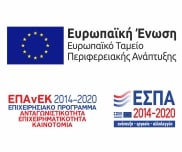Court representation throughout Greece
High-level dispute resolution: With its extensive experience in complex and international litigation in the areas of civil, commercial and corporate law, AP & Generalis is a partner you can rely on. Having worked closely for many years with foreign firms and insurance companies (based in Germany, Switzerland, Austria, Poland and elsewhere), our court representation services ensure that all necessary steps are taken to secure and recover debt or defend against lawsuits in all jurisdictions in Greece.
Either as plaintiff or defendant, at AP & Generalis you will have the services of a diligent and dedicated team of litigators, who will thoroughly prepare you for any court appearance and constantly update you on developments and progress in your case, either directly or by means of your electronic file. We place all our experience and expertise at your disposal in order to achieve the best possible resolution of the dispute for you and effectively protect your rights.
The Litigation department of AP & Generalis comprises a team of experienced lawyers specializing in civil law, commercial law and corporate law cases, who have successfully represented international companies and individuals before Greek civil courts of all instances, as well as before arbitral tribunals. We combine critical thinking with innovative solutions, always with the aim of achieving the best possible outcome for the client. Particularly in disputes with a foreign element – where the provisions of Greek Private International Law apply, but so too do European regulations and other international treaties – our in-depth knowledge and experience give our clients a decisive advantage.
We will inform you in detail about the particularities of Greek procedural law, prepare you in good time and work with you to determine the most effective strategy for a successful court case in Greece.
Our tried and tested formula for your court case in Greece
This is our winning formula for the fastest possible, satisfactory resolution of litigation:
- Preventive action (to identify and avoid potential disputes at the stage of drawing up the contract, contract management, timely documentation, securing of evidence)
- Exhaustion of any out-of-court settlement approaches and pursuit of alternative dispute resolution strategies
- Steps to obtain interim relief in order to deal with an imminent risk (e.g. by means of collateral and the attachment of assets in Greece and abroad or by opposing such measures)
- Thorough preparation for court appearances and systematic collection of evidence
- Representation of our clients before all courts and arbitral tribunals
- Enforcement of judgments, orders and arbitral awards
In addition, in the framework of the preparation and drafting of contracts, we provide our clients with advice on the appropriate agreements in terms of the competent courts and arbitral tribunals.
The most important provisions and changes in the Greek Code of Civil Procedure at a glance
Greek Civil Procedure presents certain particularities, which must be taken into consideration. For example:
- Service of process on the initiative of the parties. The service of process, notices and other documents by a court bailiff is not performed ex officio, but arranged by the parties themselves.
- A copy of the action must be served on the opposing party within 30 days from the filing of the action. If the defendant is domiciled or has its registered office abroad, the action must be served within 60 days, through international judicial cooperation. If these deadlines pass without proper service, the action is treated as never having been filed. This short time limit often creates a situation of legal uncertainty, since international service of process is usually a lengthy procedure.
- By virtue of Law 4335/2015 which amended Civil Procedure when it entered force on 01.01.2016, the Greek Code of Civil Procedure does not – in principle – make provision for oral proceedings before the court. By way of exception, however, the court may order an examination of witnesses, if it deems this necessary.
- According to article 237, par. 1 of the Code of Civil Procedure, within a period of 100 days from the filing of the action (or 130 days if the defendant is domiciled or based abroad) all the parties must submit their pleadings, along with their judicial powers of attorney and evidence, to the registry of the relevant court. This deadline cannot be extended; pleadings submitted late are not taken into consideration by the court. Any delay or omission on the part of the defendant will result in a judgment by default.
- The above deadline as laid down in article 237 of the Code of Civil Procedure is suspended during the period of judicial vacations, i.e. from 01.08 to 31.08.
- The defendant may view the plaintiff’s evidence only after the pleadings of both sides have been submitted to the court. In other words, at the time of submission of the defendant’s pleadings, the defendant does not know what evidence has been presented by the plaintiff.
- Within a time limit of fifteen (15) days from the timely submission of the pleadings of the plaintiff or defendant to the court, the parties may file additional pleadings in rebuttal of the opposing party’s claims and in response to the evidence presented. After this additional time, the case file is closed, concluding this particular stage of the proceedings. The court in principle bases its decision on the case file.
- None of the above time limits can be extended.
- When the value of the subject-matter of a dispute exceeds €30,000, the dispute is now submitted to a mandatory initial mediation session with an independent mediator. The minutes of the mediation session must then be submitted to the court by the plaintiff, together with the evidence (even if the opposing party did not attend the aforesaid initial mediation session).
The experienced team of AP & Generalis are at your disposal at any time, ready to provide their specialist and bespoke advice at our offices in Athens and Berlin, and of course by telephone or video conferencing (Teams, Zoom, Skype).

INFO

Anna Agadakou
INFO

Athanassia Sioundri
INFO

